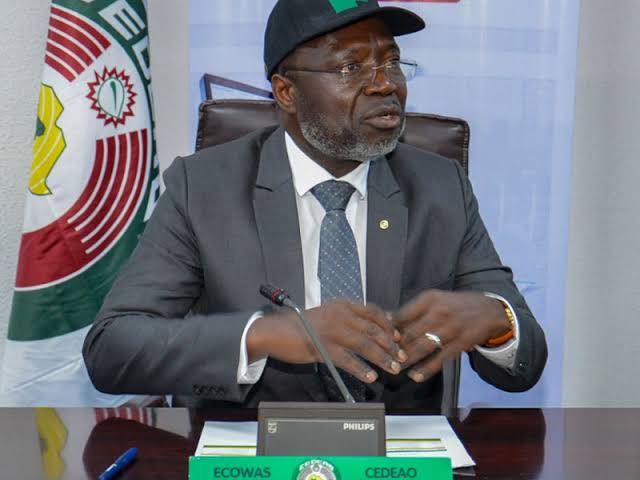By Linus Aleke, Abuja
The President of the ECOWAS Commission, Dr. Omar Alieu Touray, has raised alarm over imminent food crisis, warning that if appropriate measures are not taken, no fewer than 49.5 million West Africans may go to bed on empty stomach by the lean season in June/August 2024.
He noted that Nigeria has the highest number with 31.7 million, adding 3.4 million in Niger, 3.3 million in Chad, 2.7 million in Burkina Faso, 1.6 million in Sierra Leone, 1.4 million in Mali, and around 1 million in Ghana.
Touray, gave this warning in Abuja, while presenting the 2024 Interim Report, on the state of the Community, at the ongoing First Ordinary Session of ECOWAS Parliament.
He recalled that the Réseau de Prévention de Crises Alimentaires (Food Crisis Prevention Network – RPCA), at its meeting held between 3rd and 5th April 2024, presented a cereal production forecast for 2023- 2024 of approximately 77 million tons.
He said this represents a fall of 0.6% from the previous year, but an increase of 4% compared with the average for the last five years.
The president noted that production of roots and tubers, valued at 206 million tons, is up by 4% compared to last year 8% against the five-year average.
According to him, “Despite these results, the food and nutrition situation in the region remains a source of concern. If appropriate measures are not taken, 49.5 million people could be affected by the crisis by the lean season in June-August 2024″.
The President said, the number of malnourished children continues to rise in the region, with around 16.7 million children under the age of five affected by acute malnutrition.
This food situation, he said, is worsened by civil insecurity, leading to large-scale population movements of at least 6.9 million internally displaced people, deprived of their essential resources such as housing, means of production, and social capital.
He said: “In response to the worsening food and nutrition situation in the region, ECOWAS is preparing to extend its solidarity to the most affected Member States by donating over 5,000 tons of grains (maize, sorghum, millet, and rice) and enriched flour”.












